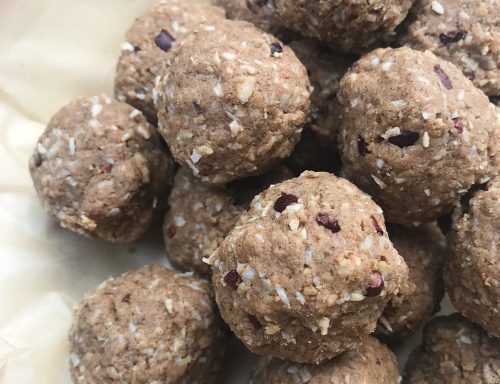Let’s talk about fat. For quite some time, especially here in the USA, fat got a bad reputation and countless companies began producing “low fat” or “fat free” foods. This is when the addition of sugars, artificial flavoring, and preservatives increased tremendously – resulting in a lot of crappy food disguised as “healthy”.
What many people seemed to ignore at this point was the benefits of fat, and that only the wrong types of fat have negative consequences. Including plenty of fat in your diet is OK – there’s actually no more dietary fat consumption cap as of 2015. Once the myth of fat being bad for you was debunked by research, the USDA changed their stance and recommendations. The new guidelines now make it clear as to what fats we should limit or avoid: Trans fats and saturated fats. These can be found in highly processed oils and meats, dairy products, fried food, and desserts containing butter, shortening or margarine.
So, what fatty-foods should we be eating?
- Nuts (almonds, walnuts, brazil nuts)
- Seeds (pumpkin seeds, chia seeds, hemp seeds, flax seeds)
- Olives and Olive Oil
- Avocados
- Salmon + Small fishes (Anchovies, Herring, Sardines)
- Coconut products (Note: Coconut oil has been discussed a lot in the health field lately, and not all with positive points. This oil is a source of saturated fats, but from a whole plant source, and research still shows it to be good for us in many ways.)
These all contain a variety of fatty acids – Omega 3, 6 and 9s, which are the types we want to have when consuming fats.
Now let’s get down to WHY fat is actually so, so good for us. Including a good amount of healthy fats in our diet is proven to:
- Help regulate hormones and maintain optimal hormone levels
- Encourage proper brain development and improve brain function (from cognitive processes to mental health)
- Help stabilize blood sugar levels
- Increase satiability, control cravings and hunger levels (which are also hormone related)
- Increase uptake and absorption of certain vitamins (Vitamin A, D, E and K)
- Promote skin, hair, and eye health
- Reduce overall inflammation in the body
These balls are an easy and delicious way to up your intake of this super macronutrient. Feel free to change the types of nuts/seeds, leave out the protein powder if desired, or replace the sweetener with 1-2 tbsp of maple syrup or honey if dates just aren’t your thing. Enjoy!


Serves: 15-20, depending on size
Ingredients:
1 cup coconut shreds
1/2 cup coconut oil
1/4 cup coconut butter
1/2 cup pumpkin seeds
1/2 cup almonds
1 scoop plant-based protein powder (Vega Sport used here)
2 tbsp. cacao nibs
1 tsp. cinnamon (can also add ½ tsp ground ginger or turmeric for extra anti-inflammatory boosts)
3 medjool dates (pitted, soaked in water for a few hours first if too dry)
1/3 cup almond milk, or non-dairy milk of choice
Method:
- Combine everything in a food processor or blender until dough-like consistency is reached.
- If you have a small blender I suggest doing this in stages: start with the dates, coconut oil, butter and milk, then add the nuts/seeds and coconut shreds, then finish by adding the powder, spices and cacao nibs.
- Roll dough into bite-size balls, and then place in freezer inside an airtight container.
- Before eating let balls thaw for 5-10 mins. If kept in the freezer they’ll last for 2-4 months.
Recipe adapted from @Leefromamerica


